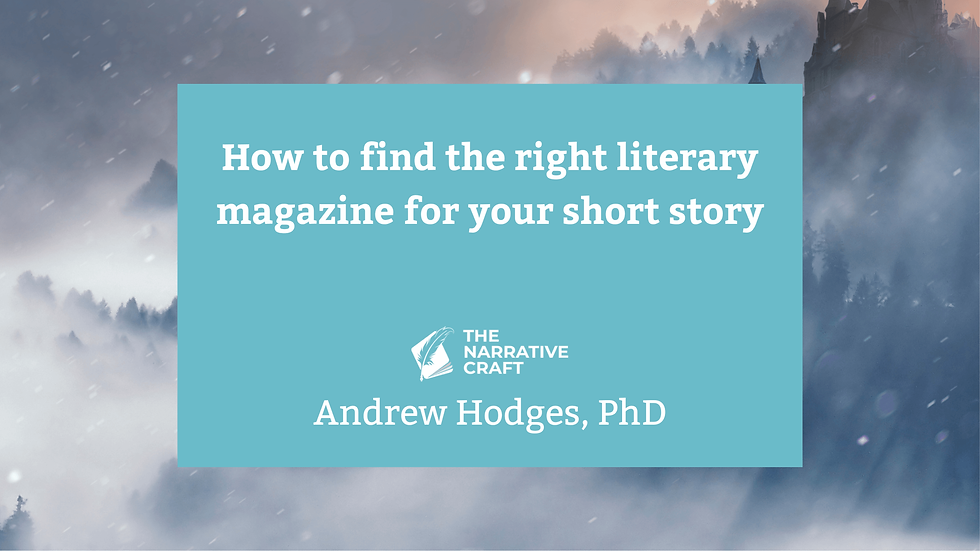Metaphors in Worldbuilding
- Andrew Hodges

- Oct 8, 2024
- 4 min read
Updated: Jul 2

When you create a new fantasy world, it’s worth paying attention to the language and metaphors you use to describe it.
The English language is full of metaphors (“change tack”) and idioms (“what the hell?”) that link to the UK’s maritime and partly Christian history. But are maritime and Christian metaphors appropriate for the world you’ve created?
If your world is polytheistic, a word like “godsforsaken” would be more appropriate than “godforsaken,” for example.
One important question, then, is how far you go with these metaphors. There are two approaches you can take, which are really two ends of a sliding scale.
Before I cover them, it’s worth pointing out that these approaches especially suit writers of second-world fantasy or science fiction. If you’re writing a speculative novel set in our world, these issues are less important, although if you’re writing postapocalyptic science fiction or historical fantasy, you definitely want to pay attention to the kinds of metaphors and language that would be used in that setting.
Approach 1: To make your world as complete as possible, purge your text of real-world metaphors and idioms
At one extreme, you could purge your entire text of any words that link to English in the real world’s colonial, Christian, etc., origins. This would be an exercise in decolonizing your writing. You’ll be surprised just how many of these words and phrases feature in everyday conversations!
I highly recommend doing a close reading of your novel for some of these phrases. Some are obvious, such as “What the hell?” Others are less obvious, such as “escaped by the skin of their teeth.”
If you take this approach, you should develop some new phrases. If your worldbuilding centers alchemy, for instance, then you could come up with some alchemy-related metaphors and idioms.
The danger here is that you draw the reader’s attention too much to wordcraft in a way that breaks their immersion in the story. But an occasional, carefully placed and cleverly thought-out metaphor will help make your world feel more complete.
With phrases like “escaped by the skin of their teeth,” we’re in dodgy territory because the average reader would likely not link this to a Christian origin. If the reader isn’t seeing the connection, then replacing the idiom with a less usual one that reflects the worldbuilding could simply draw unnecessary attention to wordcraft.
This is why I recommend you use this approach sparingly. If you overdo it, the reader will feel that you’re trying to be clever. Like a bad pun, if the reader keeps encountering the same metaphors and idioms, they may start to groan after a while. It’s a bit like using italics for emphasis, like this. When you use italics in this way, you’re drawing attention to the word or phrase.
And that’s what’s happening here when you use unusual metaphors that link to the worldbuilding. Just like italics for emphasis, overuse becomes distracting; irritating even. A word of caution here: focusing too much on wordcraft over story is a real danger, and there are examples of badly plotted books (The Name of the Wind is an example that springs to mind) that have resulted from an overly academic approach to the text.
Approach 2: Accept that worldbuilding is always a comparison with the real world, and minimize use of unusual metaphors and idioms that break reader immersion in the text
Here, you simply accept that a novel is written in the primary (real) world and that language from your time and place will naturally creep in. For example, JRR Tolkien included military slang and phrases that linked to his earlier World War I experiences in his fantasy writing.
This approach pays less attention to language used. It’s naturally going to be more common in commercial (genre) fiction than the more literary end of speculative fiction. I appreciate the realism in this approach: the author simply accepts that the text is always a comparison with the real world, and creating a completely separate reality is impossible. But, equally, some readers may call you out if your book is set in another universe yet is full of Christian metaphors and idioms.
How the choice relates to point of view
The choice you make also relates to point of view. If you’ve chosen a direct point of view, with no external narrator, then it absolutely makes sense that the viewpoint character narrates events using examples from inside their experience. Writing “a cave as big as a football field” or “a crystal orb the size of a golf ball” makes no sense if narrated by a character living in a world where people don’t play football or golf.
If you opt for an external, omniscient narrator, then it’s reasonable that this external narrator knows and uses phrases from the primary (real) world.
Finding the middle ground
Even if you attempt to purge your text of real-world references, something will creep in, I guarantee it! And focusing too much on wordcraft and metaphor at the expense of story is generally a bad idea. That said, a judiciously placed metaphor or idiom can make your world feel much more complete.
At the end of the day, you want to walk a tightrope between enough familiarity and strong reader immersion, versus creating the illusion of a complete world, while not focusing on wordcraft and language to the detriment of story.
Any comments or strong opinions on this? If so, let me know in the comments below!




Comments